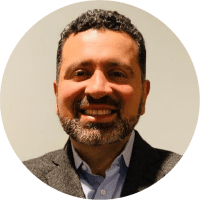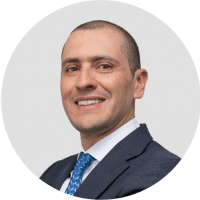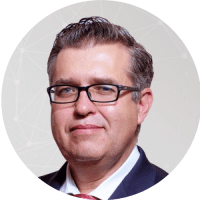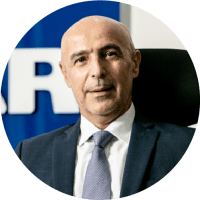About this webinar
The XXXV Conference of Central Banks and Official Institutions organized by the Latin American Reserve Fund - FLAR
This event will focus its agenda on exploring the main trends that will impact the world in the coming years. A look into the future will allow us to glimpse how issues such as DeFi and the future of finance, climate change, the future of money, work, geopolitics and the role of central banks will evolve.
Event Agenda
This is the event agenda, you can check the details about each session and its speaker.
Tuesday, November 02, 2021
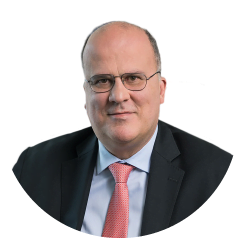
-
 José Darío UribeExecutive President FLAR
José Darío UribeExecutive President FLAR
Opening remarks, by the Executive President of the Latin American Reserve Fund FLAR - José Darío Uribe.
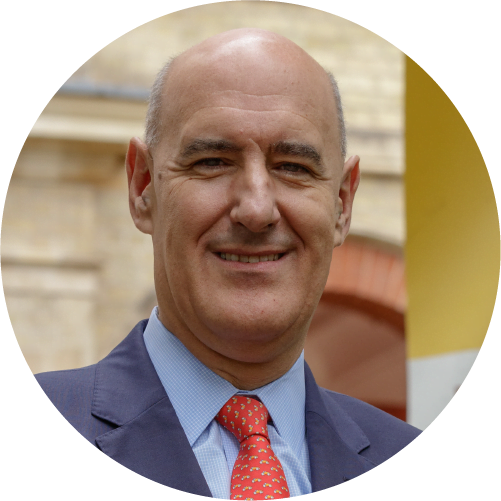
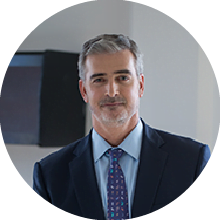
-
 Mauro Guillen (Guest Speaker)Dean of Cambridge Judge Business School
Mauro Guillen (Guest Speaker)Dean of Cambridge Judge Business School -
 Iker Zubizarreta (Moderator)Chief Investments and Financial Officer, FLAR
Iker Zubizarreta (Moderator)Chief Investments and Financial Officer, FLAR


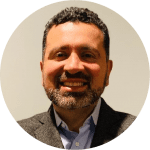
-
 Kate Marvel (Guest Speaker)Climate Scientist at Columbia University, and Climate Scientist at NASA’s Goddard Institute for Space Studies
Kate Marvel (Guest Speaker)Climate Scientist at Columbia University, and Climate Scientist at NASA’s Goddard Institute for Space Studies -
 Alex Bernhardt (Speaker)Global Head of Sustainability Research at BNP Paribas Asset Management
Alex Bernhardt (Speaker)Global Head of Sustainability Research at BNP Paribas Asset Management -
 Marco Ruiz (Moderator)Senior Financial Officer- Reserves Advisory & Management Partnership, RAMP World Bank Treasury
Marco Ruiz (Moderator)Senior Financial Officer- Reserves Advisory & Management Partnership, RAMP World Bank Treasury
Thursday, November 04, 2021
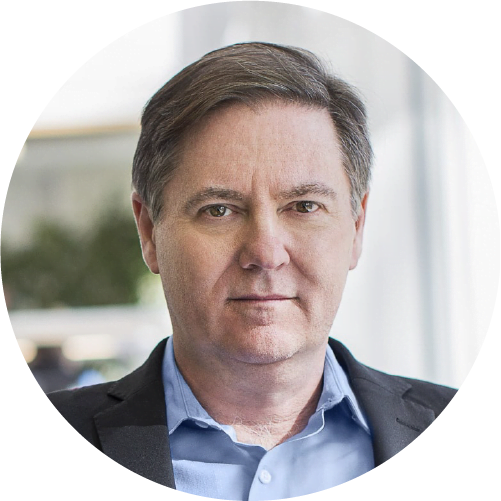

-
 Campbell R. Harvey (Guest Speaker)Professor of Finance at the Fuqua School of Business, Duke University
Campbell R. Harvey (Guest Speaker)Professor of Finance at the Fuqua School of Business, Duke University -
 Iker Zubizarreta (Moderator)Chief Investments and Financial Officer, FLAR
Iker Zubizarreta (Moderator)Chief Investments and Financial Officer, FLAR


-
 Robert Pozen (Guest Speaker)Former President, Fidelity Investments; Lecturer, Sloan School of Management
Robert Pozen (Guest Speaker)Former President, Fidelity Investments; Lecturer, Sloan School of Management -
 Mario Acosta (Moderator)Head of Investments, FLAR
Mario Acosta (Moderator)Head of Investments, FLAR
Tuesday, November 09, 2021
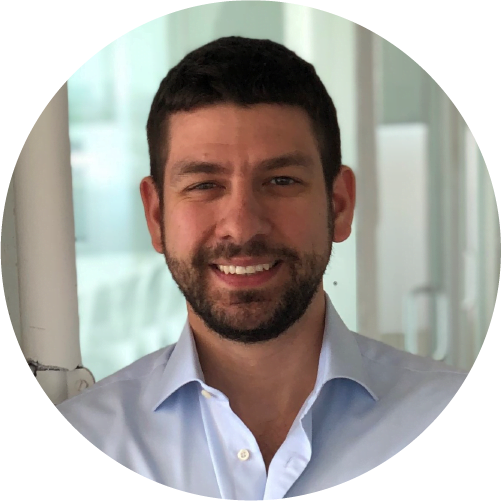

-
 Marko Papic (Guest Speaker)Partner & Chief Strategist Clocktower Group
Marko Papic (Guest Speaker)Partner & Chief Strategist Clocktower Group -
 Antonio Candia (Moderator)Principal of Financial Innovation, FLAR
Antonio Candia (Moderator)Principal of Financial Innovation, FLAR
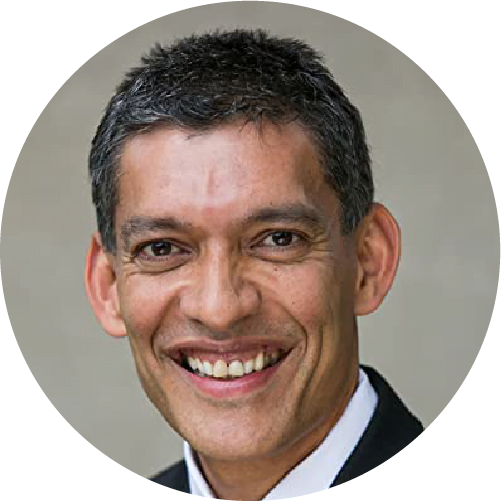
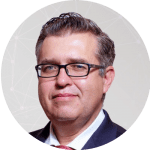
-
 Eswar Prasad (Guest Speaker)Tolani Senior Professor of Trade Policy and professor of economics at Cornell University
Eswar Prasad (Guest Speaker)Tolani Senior Professor of Trade Policy and professor of economics at Cornell University -
 José Manuel Marqués (Moderator)Head of the Financial Innovation Division · Banco de España
José Manuel Marqués (Moderator)Head of the Financial Innovation Division · Banco de España
Thursday, November 11, 2021
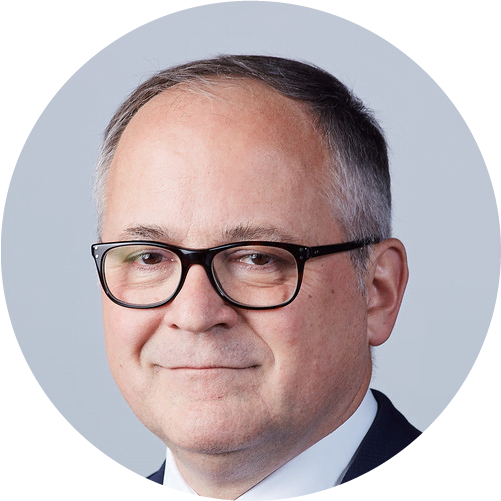

-
 Benoît Cœuré (Guest Speaker)Head of the BIS Innovation Hub
Benoît Cœuré (Guest Speaker)Head of the BIS Innovation Hub -
 Fidel Jaramillo (Moderator)Secretary General, FLAR
Fidel Jaramillo (Moderator)Secretary General, FLAR

-
 Iker Zubizarreta (Moderator)Chief Investments and Financial Officer, FLAR
Iker Zubizarreta (Moderator)Chief Investments and Financial Officer, FLAR
For high level representatives of Official Institutions.
By invitation only. You may request participation at comunicaciones@flar.net.
Session will NOT be recorded, and therefore replay will NOT be available
About the Latin American Reserve Fund FLAR
The Andean Reserve Fund (FAR) was created in 1978 as a Regional Financing Arrangement (RFA), in response to the needs of Bolivia, Colombia, Ecuador, Peru and Venezuela to have their own financial institution, to address the problems resulting from the imbalances in the external sector of their economies and to facilitate the regional integration process. It became the second oldest RFA in the world.
In 1989, based on the solid foundations of a fully operating body, FAR became the Latin American Reserve Fund (FLAR) due to the interest of the Andean countries in expanding the Andean Reserve Fund (FAR) to all Latin America. Thus, Costa Rica, Uruguay and Paraguay adhered as FLAR member countries in 2000, 2009 and 2015, respectively.
Guest Speakers

Mauro Guillen
Dean of Cambridge Judge Business SchoolDean of Cambridge Judge Business School and a fellow of Queens’ College, University of Cambridge. Cambridge Judge has a global reach, leveraging the power of academia for real world impact.Dean Guillén is a best-selling author and prize-winning scholar, he is the receipient of Fulbright and Guggenheim fellowships. His research on globalization, multinational corporations, and digital platforms has earned him awards from the Academy of Management, the American Sociological Association, and the Social Science History Association. He won the Aspen Institute’s Faculty Pioneer Award for the innovative curriculum he designed as Director of the Lauder Institute at the Wharton School of the University of Pennsylvania. His book, 2030: How Today’s Biggest Trends Will Collide and Reshape the Future of Everything is an international and Wall Street Journal bestseller. He is an elected member of the Sociological Research Association and the Macro Organizational Behavior Society, and a trustee of the Royal Foundation Princess of Asturias in his native Spain. He remains a keen sportsman and was a member of the University of Oviedo basketball team that won Spain’s National College Championship in 1987.

Marko Papic
Partner & Chief Strategist Clocktower GroupPartner and chief strategist at Clocktower Group, an alternative investment asset management firm. He leads the firm’s Strategy Team, providing bespoke research to clients and partners on geopolitics, macroeconomics, and markets. Previously, Mr. Papic founded BCA Research’s Geopolitical Strategy practice, the financial industry’s first dedicated political analysis investment strategy, which generated “geopolitical alpha” by identifying gaps between the market’s political expectations and the firm’s forecasts. He served as a senior vice president and the chief geopolitical strategist at the firm. Mr. Papic began his career as a senior analyst at Stratfor, a global intelligence agency where he contributed to the firm’s global geopolitical strategy and its analyst recruitment and training program. In his academic work, he helped create the Center for European Union Studies at the University of Texas at Austin. Mr. Papic is the author of Geopolitical Alpha: An Investment Framework for Predicting the Future, a book that introduces the constraint-based framework to investors. He earned an MA in political science from the University of Texas at Austin and an MA from the University of British Columbia.

Benoît Cœuré
Head of the BIS Innovation HubBenoît Cœuré became Head of the BIS Innovation Hub in 2020. He is a member of the Bank's Executive Committee. Previously, he was a member of the Executive Board of the ECB. From 2013 to 2019, he chaired the BIS's Committee on Payments and Market Infrastructures. Prior to joining the ECB, he served in various positions at the French Treasury and the French debt management office. Between 2007 and 2009, he was France's Assistant Secretary for Multilateral Affairs, Trade and Development, co-chair of the Paris Club, and G8 and G20 Finance Sous-Sherpa for France. From 2009 to 2011, he was Deputy Director General and Chief Economist at the French Treasury. Mr Cœuré is a graduate of the École Polytechnique in Paris. He holds an advanced degree in Statistics and Economic Policy from the École nationale de la statistique et de l'administration économique (ENSAE), and a bachelor's degree in Japanese. He has authored articles and books on economic policy, the international monetary system and the economics of European integration.

Nimrod Barshad
Climate Scientist at Columbia University, and Climate Scientist at NASA’s Goddard Institute for Space StudiesKate Marvel is a climate scientist at Columbia University and the NASA Goddard Institute for Space Studies. She received a PhD in theoretical physics from Cambridge University and has worked at Stanford University, the Carnegie Institution, and Lawrence Livermore National Laboratory. Kate writes the Hot Planet column for Scientific American and essays for On Being and Nautilus Magazine. She's given talks in places as diverse as comedy clubs, prisons, and the TED main stage.

Eswar Prasad
Tolani Senior Professor of Trade Policy and professor of economics at Cornell University.Tolani Senior Professor of Trade Policy at Cornell University. He is also a Senior Fellow at the Brookings Institution, where he holds the New Century Chair in International Economics, and a Research Associate at the National Bureau of Economic Research. He was previously chief of the Financial Studies Division in the International Monetary Fund's Research Department and, before that, was the head of the IMF's China Division. Prasad’s latest book, The Future of Money: How the Digital Revolution is Transforming Currencies and Finance, will be published by Harvard University Press in September 2021. He is also the author of Gaining Currency: The Rise of the Renminbi (Oxford, 2016) and The Dollar Trap: How the U.S. Dollar Tightened Its Grip on Global Finance (Princeton, 2014). His extensive publication record includes articles in numerous collected volumes as well as top academic journals such as the American Economic Review, American Economic Journal: Macroeconomics, Brookings Papers on Economic Activity, The Economic Journal, International Economic Review, Journal of Development Economics, Journal of Economic Perspectives, Journal of International Economics, Journal of International Money and Finance, Journal of Monetary Economics, and Review of Economics and Statistics. He has co-authored and edited numerous books and monographs, including on financial regulation and on China and India.

Robert Pozen
Former President, Fidelity Investments; Lecturer, Sloan School of ManagementRobert C. Pozen is currently a Senior Lecturer at MIT Sloan School of Management and a non-resident Senior Fellow at the Brookings Institution.In 2012, he won acclaim for a popular book entitled Extreme Productivity: Boost Your Results, Reduce Your Hours. In the Spring of 2021, he published a new book on productivity when working remotely, entitled, Remote Inc.: How to Thrive at Work...Wherever You Are.In 2004, Bob became the executive chairman of MFS Investment Management, which now manages over $400 billion for mutual funds and pension plans. Between 2004 and 2011, MFS's assets under management nearly tripled from a base of $130 billion.During his distinguished career, Bob has been active in business, government and academia. Prior to joining MFS, he was vice chairman of Fidelity Investments and president of Fidelity Management & Research Company. During Bob's five years as president, Fidelity's assets increased from $500 billion to $900 billion.In late 2001 and 2002, Bob served on President Bush's Commission to Strengthen Social Security, where he developed a progressive plan to make the system solvent. In 2003, Bob served as Secretary of Economic Affairs for Massachusetts Governor Mitt Romney. In 2007, he served as chairman of the SEC's Committee to Improve Financial Reporting.Bob is currently an independent director of AMC (a subsidiary of the World Bank). He previously was an independent director of Nielsen, Medtronic PLC, and BCE (the parent of Bell Canada). He also serves as chairman of the Leadership Council of the Tax Policy Center, chairman of the Advisory Board of Agility (an outsourced CIO), trustee of the IFRS Foundation (international accounting), and member of the Council on Foreign Relations.Bob frequently writes articles for the Financial Times, the New York Times, the Wall Street Journal and the Harvard Business Review. He has published a book on the recent financial crisis, Too Big To Save? How to Fix the US Financial System, and a guide for investors entitled The Fund Industry: How Your Money is Managed.Bob graduated summa cum laude from Harvard College and holds a law degree from Yale Law School, where he also obtained a doctorate for a book on state enterprises in Africa. He lives in Boston with his wife of over 40 years.

Campbell R. Harvey
Professor of Finance at the Fuqua School of Business, Duke UniversityProfessor of Finance at the Fuqua School of Business, Duke University and a Research Associate of the National Bureau of Economic Research in Cambridge, Massachusetts. He served as President of the American Finance Association in 2016.Professor Harvey obtained his doctorate at the University of Chicago in business finance. He has served on the faculties of the Stockholm School of Economics, the Helsinki School of Economics, and the Booth School of Business at the University of Chicago. He has also been a visiting scholar at the Board of Governors of the Federal Reserve System. He was awarded an honorary doctorate from Svenska Handelshögskolan in Helsinki. He is a Fellow of the American Finance Association. Harvey received the 2016 and 2015 Best Paper Awards from The Journal of Portfolio Management for his research on distinguishing luck from skill. He has also received eight Graham and Dodd Awards/Scrolls for excellence in financial writing from the CFA Institute. He has published over 150 scholarly articles on topics spanning investment finance, emerging markets, corporate finance, behavioral finance, financial econometrics and computer science. Harvey is a Founding Director of the Duke-CFO Survey. This widely watched quarterly survey polls over 1,500 CFOs worldwide. Harvey serves Partner and Senior Advisor at Research Affiliates, LLC who oversees over $180 billion in client funds as well as Investment Strategy Advisor to the Man Group plc, the world’s largest, publicly listed, global hedge fund provider. Harvey edited the Journal of Finance – the leading scientific journal in his field and one of the premier journals in the economic profession from 2006-2012. Over the past seven years, Professor Harvey has taught “Innovation and Cryptoventures” at Duke University. The course focuses on blockchain technology and decentralized finance. He also teaches "Tech Driven Transformation of Business" and "International Finance".



